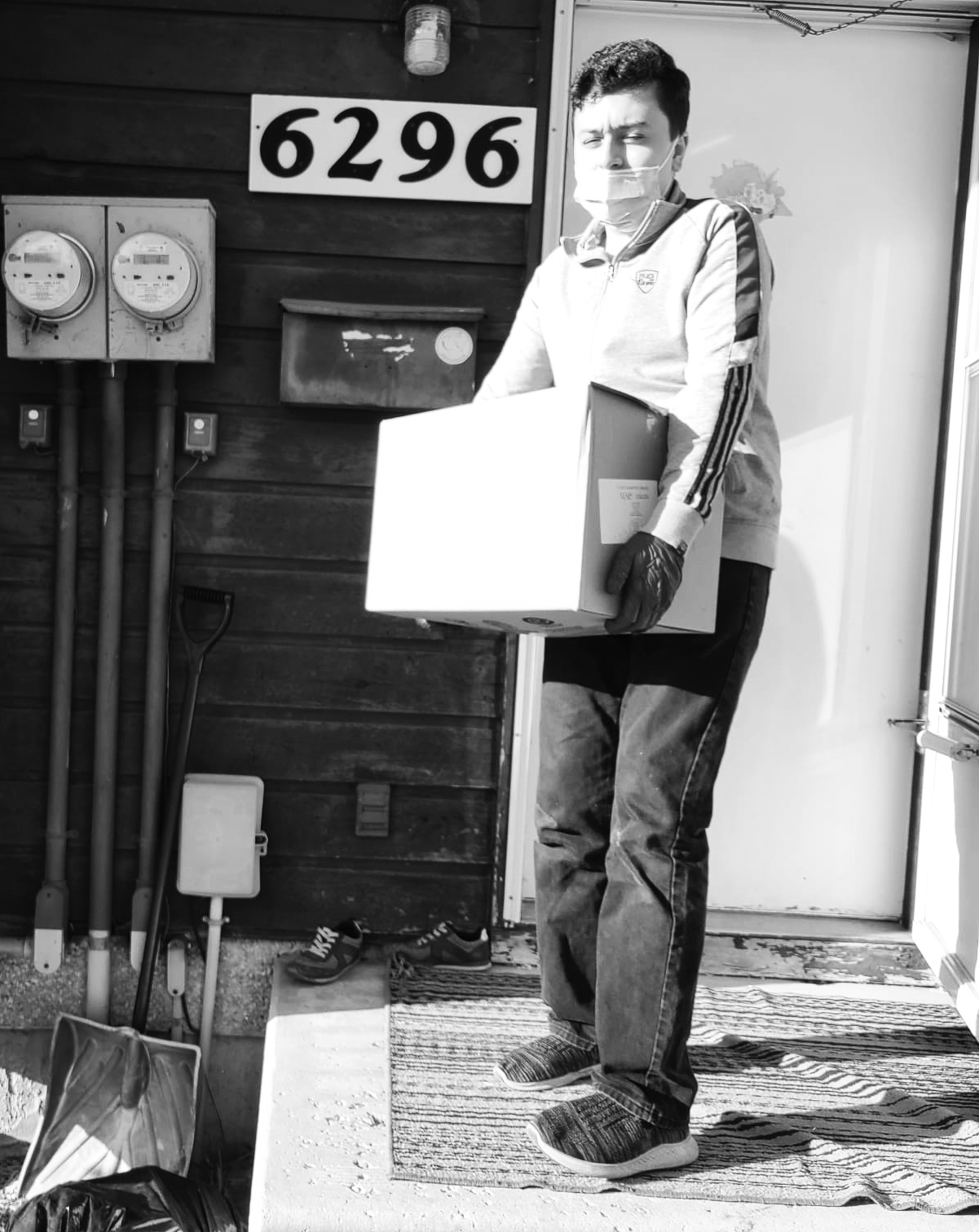REACH STORIES
Brokers build bridges during pandemic pressures
Ethnocultural communities face many barriers and stresses at any time, but many of these challenges have intensified during the pandemic.
The Multicultural Health Brokers (MCHB) have been working to bridge these gaps since 1998, and continue to rise to the challenges communities are facing in these challenging years.
“Our role is always to honour and make visible what’s happening in ethnocultural communities,” says Yvonne Chiu, Executive Director of MCHB. “That's why 90% of our staff are members of the communities.”
“When Covid hit, we had to step up in several ways,” she says. “Our communities were deeply impacted economically, struggling with food and housing security.”
For example, the Co-op’s existing food supports program, which was previously serving about 190 families, was suddenly supporting over 550 families, with support from The Food Bank and other partners.
MCHB also stepped in the first year of the pandemic to provide families with support to access necessary technology and digital literacy education because of all systems going report.
And later on, MCHB began to provide culturally and linguistically relevant information about COVID and vaccines.
“Because our community members often work in particular job situations and have higher density living conditions, they have higher levels of covid infection,” says Yvonne.
Both language barriers and cultural differences between newcomer and Western communication styles created unique barriers to connecting communities with reliable information about Covid-19 and vaccines.
“We were running pop-up vaccination services with partners in the community and Alberta Health Services. We’ve been really learning how to do this well,” says Yvonne.
The vaccine pop-up clinics were a resounding success, with about 140 people turning out to get the shot at one of the pop-up clinics at Clareview Recreation Centre, with support from the City of Edmonton.
“We know our community members listen to certain people. Many communities also want to hear from faith leaders, trusted community leaders and community workers from their ethnocultural communities,” she says. “We’re learning how to use popular community social media networks, and produce YouTube and audio clips. We're learning fast. By talking to them, we’re able to fill this gap in a critical time in the pandemic.”
One of the largest challenges to the work was finding ways to do work that relies on relationship-building while social distancing.
“I think one of the key things isn’t that the needs have shifted, but the needs have just become more intense as covid has carried on,” says Joey Jalal, Managing Coordinator of Youth Programming and MCHB. “It’s been very intense work.”
When it comes to something as complex as preventing family violence, an issue as simple as resolving a conflict at school is now much more complicated as bot youth and parents are stressed and don’t have the same level of emotional regulation they normally do. This in addition to pre-migration trauma and language barriers that make navigating systems a challenge on the best of days.
“We do our work through that emotional connection that’s based on the understanding of their pre and post migration experience,” says Joey, “Having to create these relationships through a computer screen has been challenging.”
Brokers work with a client or family through the whole spectrum of the challenges they’re facing in their life, including housing, schooling, and any other gaps that need to be bridged between the family and the systems they need to interact with.
Because Eden Askale, a Youth Broker with MCHB, is from the Eritrean community, she understands the complexities of connecting with systems as a newcomer. She’s better able to be that bridge because the family is comfortable with her and they feel that they’re being heard.
“All these services used to be provided in person, but now we work virtually most of our time,” says Eden. “That has affected the relational work we do with our clients, especially with youth. It has been really hard to form that bond and make that relationship work virtually.”
Pre-pandemic, a homework club not only offered supports with schoolwork but gave youth an opportunity to talk about any other issues they’re struggling with. These valuable side-conversations are happening less organically in group meetings on zoom.
“It’s just natural to form that relationship in person rather than virtual, but we have to be flexible,” says Eden. “We are still able to do most of our work with them, which is being that bridge for them, with different systems and different aspects of life in Canada.”
MCHB partners with REACH Edmonton on the REACH Immigrant and Refugee Initiative (RIRI).
RIRI aims to support culturally appropriate community building through the natural support model with settlement and broker service systems.
For more information about MCHB, click here.

